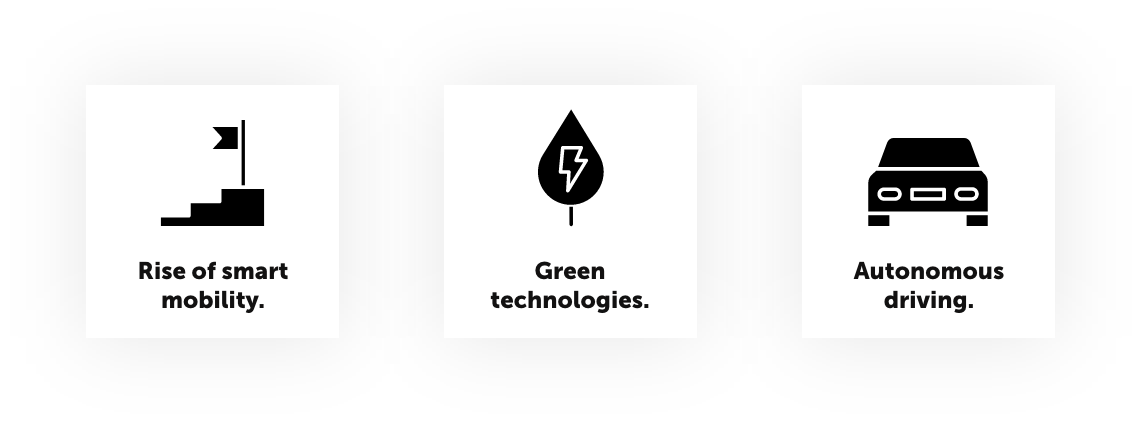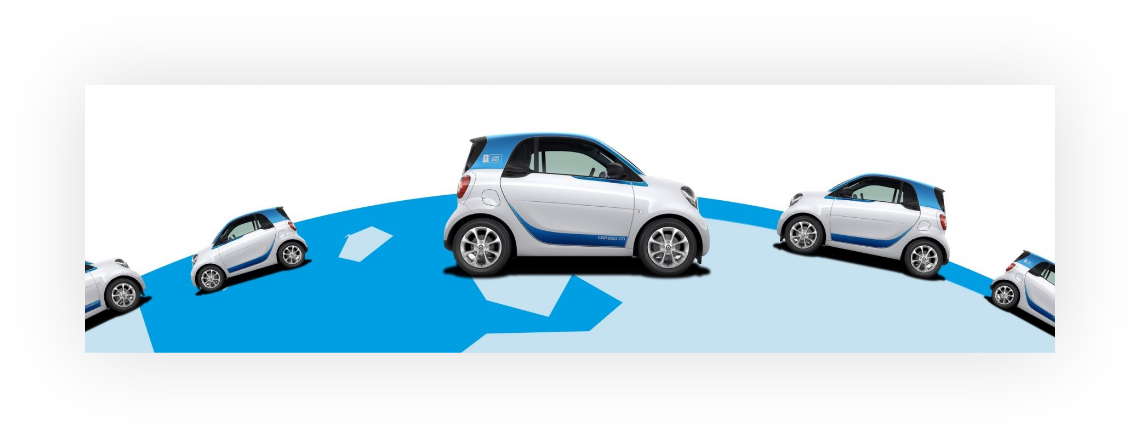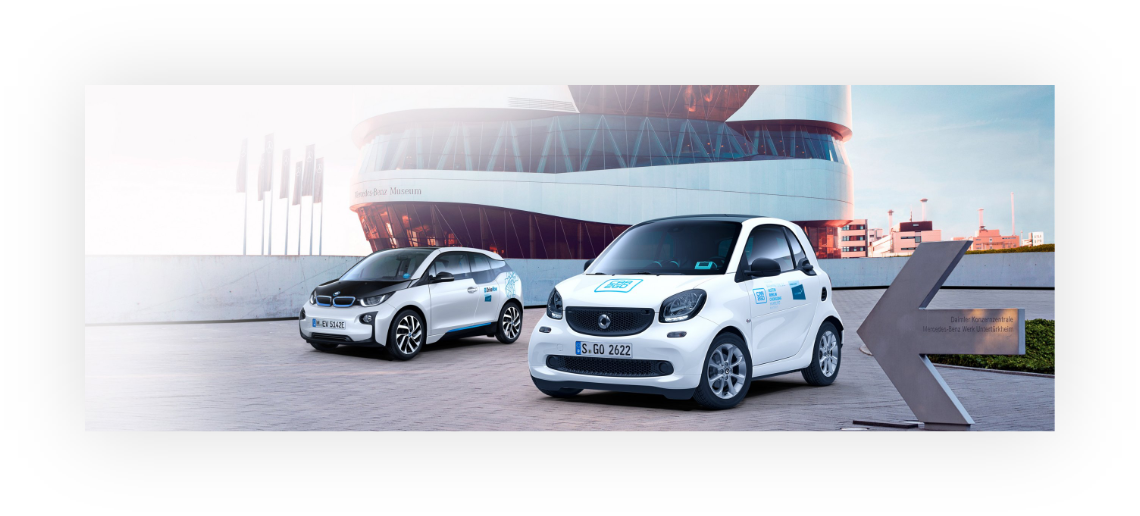Key takeaways
Car-sharing has become one of the biggest innovations in the mobility industry since the invention of the car.
With parking spots becoming more scarce, pricey insurance policies, maintenance costs, and the rising gas prices – it’s no wonder that smart mobility options have gained popularity over the years – particularly in urban areas.
According to a recent KPMG study on mobility:
- 50% of today’s car owners will probably not be interested in owning a car by as early as 2025
- In 35 years, new mobility technology is expected to drive a staggering 40% of the auto industry’s profits
- About 36% of Americans have already used one of the many ride-hailing apps
- 50% of surveyed consumers spanning 19 countries don’t prefer cars as their main form of transport
With smart mobility completely changing our relationship with cars, how can multinational car companies stay competitive and above all – stay relevant?
Let’s take a look at how Daimler AG managed to accomplish this goal in the fast-moving, technology-driven markets of today.
A little bit about Daimler AG.
Since the invention of the first automobile in 1886, Daimler has taken automotive engineering to unprecedented heights and created a culture of innovation that helped shape the automotive industry.
Today, they’re one of the world’s most renowned producers of premium cars through Mercedes-Benz AG and the world’s largest manufacturer of commercial vehicles through Daimler Truck AG.
Daimler also provides financial services through its business unit Daimler Mobility AG. Their services include rental, leasing, financing, insurance, and e-payment platforms. They also invest in app-based mobility solutions like car-sharing and ride-hailing.
The company’s current brand portfolio includes multiple brands with production facilities in Europe, Africa, South America, North America, and Asia. And with a 2019 net profit of $195 billion, it’s hard to imagine what challenges Daimler could possibly face in the upcoming years.
But here’s the thing – the automotive industry has been significantly affected by factors like:

One of the ways Daimler has remained an industry leader is by creating its own independent innovation lab, Lab1886, with the goal of identifying new business ideas, including those outside the core business, and incubate them until they’ve reached market maturity.

And this is where Car2Go comes in…
One of Lab1886’s first (and most successful) projects was Car2go, first developed in 2007 in Ulm, Germany. The concept was simple – to enable users to reserve and rent a car via a cost-free smartphone app, anytime and at a low cost.
Since then, over three million customers worldwide have used the service, and it’s not surprising when you take a look at the offering:
- Car2go had a fleet of over 14,000 smart and Mercedes-Benz vehicles
- The service was available across 24 locations in Europe, North America, and China
- In Stuttgart, Madrid, and Amsterdam, the Car2go fleets contained only electric vehicles
- All costs were already included in the per-minute price (e.g. insurance, refueling/recharging, and parking fees)
- The cars could be dropped off at any public parking spot within the home area – without incurring any parking fees
Is it any wonder they revolutionized the market?

Car2go becomes SHARE NOW
Although Daimler AG was behind the creation of the service, its operations within Europe started off being managed by Car2go Europe GmbH, a joint venture between Daimler and Europcar.
In 2018, Daimler became the sole owner of Car2go by purchasing the remaining 25% of the car-sharing company that it did not already own. The price of the acquisition was € 70 million, bringing Car2go’s total valuation to € 280 million.
In 2019, Daimler and BMW announced a joint venture that would combine their mobility services (i.e. DriveNow and Car2go) under one entity, known as Share Now.
How Car2Go and Daimler created value for each other
Car2Go is a reflection of Daimler’s long-term business strategy, helping it:
- Become a major player in the emerging shared-car business
- Create innovative IT infrastructures from within
- Directly experiment with a new disruptive business model
Additionally, Car2Go’s fleet provides the optimal test environment – enabling Daimler to collect countless pieces of data and test the sustainability of all-electric cars in day-to-day use. This data can be leveraged to create better products and meet the changing client demand.
For its part, Car2go benefited from its parent company through the use of various corporate assets, e.g. funding, resources, industry know-how, equipment, and the flexibility to bring their vision to life without the restrictions often present in large corporations.

In the end…
Car2go is a great example of the progress large corporations like Daimler can make by investing in their own innovation labs and incubator programs. Corporations can use internal startups as a catalyst for innovation and out-of-the-box thinking, while the startup feeds off the funding and resources of its parent company.
In the case of Car2Go, there are even some environmental benefits, including:
- A reduction in the number of vehicles in cities
- Improved air quality due to the increased use of electric cars
- Decreased traffic and congestion
It’s a win-win dynamic for everyone. Even for the consumers, who benefit from improved products and services that meet their demands more adequately.
Do you want to share your corporate-startup story with the community, or do you have a question about intrapreneurship? Let’s talk!
50 Corporate Venture Examples
Find out how top companies build ventures from scratch to unlock markets, fuel growth, and generate new revenue.








